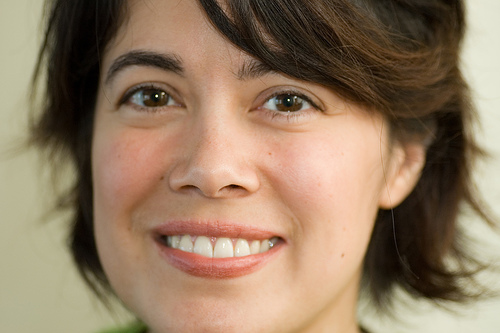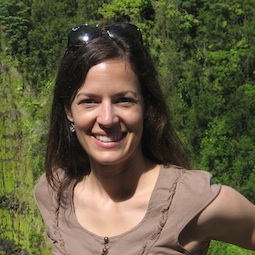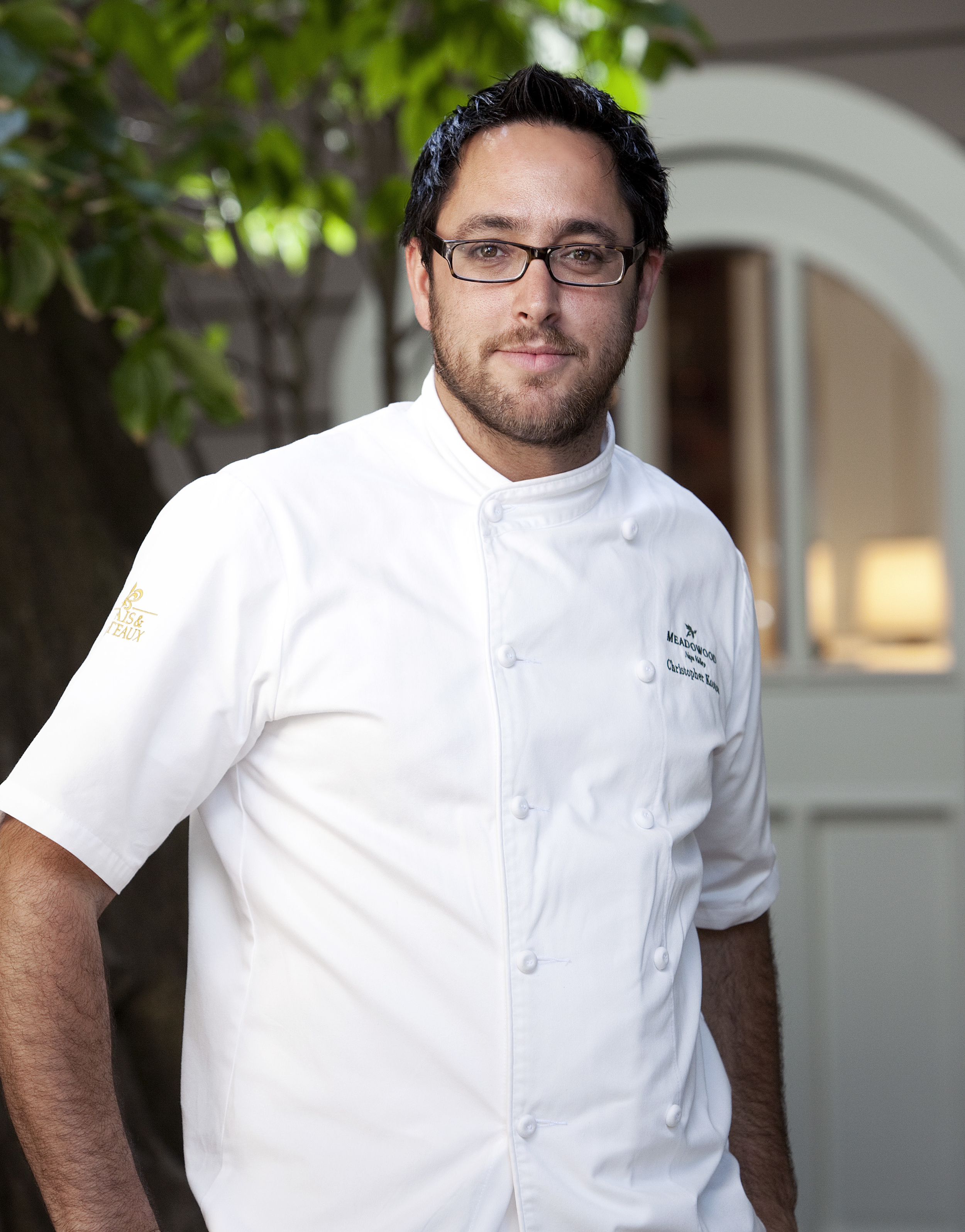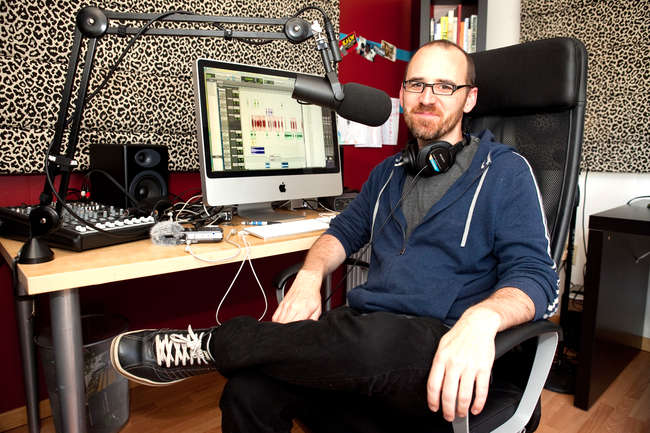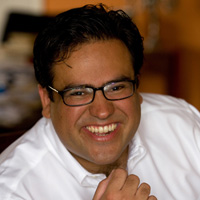21st Century Thinkers, An Annotated & Evolving Bibliography
A WORKING WALL OF PEOPLE WHO INSPIRE US
to think creatively and expansively about the practice of life.
Here are some people we take inspiration from. People who also want the real deal: something with meaning, with purpose, that addresses the human condition and the world of ideas, who are out here already, doing it in a real-life kind of way -- working with ideas, creating new institutions, finding new ways to practice.
Alain de Botton
The School of Life
Founded: 2008, in London
Where: Headquarters in London, with an expanding network of campuses worldwide
For more than twenty years, philosopher Alain de Botton has been writing astute, witty, and enormously successful books on a wide range of subjects (profound and mundane) for a popular audience. Beginning as a bold, modern reimagining of the self-help industry, The School of Life is a new kind of intellectual institution devoted to the issues of everyday life. With campuses opening all over the world, it’s a – smart, interesting, relevant – global juggernaut. People love to bandy about the word innovation, but de Botton et al. have created something that actually merits it.
In a phrase: “Good Ideas for Everyday Life”
David Christian
The Big History Project
Founded: 2011
Where: Everywhere?
A History professor figures out how to tell the history of the entire universe. Later figures out how to do it in 20 minutes. Builds a college course, and then a high school and lifelong learning curriculum around it. Gets Bill Gates behind it. Nuff said.
Say What?: “Big History is a framework for all knowledge. From the Big Bang to the modern day — and to what may lie ahead, Big History considers the great questions about our Universe, our planet, life, and humanity.”
Caterina Fake
Findery
Founded: 2012, in San Francisco
Where: Online
A highly-successful serial internet entrepreneur, Fake’s latest company, Findery, is a brilliant vehicle for engaging with a powerful idea in contemporary life. While many tech mavens continue to proclaim the end of “place” as a meaningful way of understanding human experience, Fake has created an online platform that creatively connects us to our natural, cultural, and historical landscapes – and in the process, she allows all of us to rethink the popular discourse about place. With her background in the humanities, Fake also demonstrates that online innovation can be a way to engage deeply and seriously with ideas that matter.
Peter Forbes
The Center for Whole Communities (emeritus)
Founded: 2001
Where: Knoll Farm, Fayston, Vermont
When getting ready to launch a new leadership development organization, Peter Forbes first sat down to write and edit several books about the idea of place. At The Center for Whole Communities, Forbes developed a curriculum deeply embedded in the world of ideas and the practice of bringing ideas into the world through dialogue, self-reflection, and engagement. He also designed the learning environment in which this curriculum was implemented, established the faculty structure, selected faculty (including humanities scholars and practitioners, yoga teachers, and social activists) and trained them as facilitators. More than 2,000 people from 50 states, Mexico and Canada have participated in the Center for Whole Communities’ leadership development programs.
Douglas Gayeton and Laura Howard-Gayeton
The Lexicon of Sustainability
Founded: 2009
Where: Petaluma, California
Defining concepts and talking about words to build a movement. Using all kinds of contemporary strategies to get the “word” out: visual storytelling, pop-up shows, crowd-sourcing ideas, thought leadership, books, films and more. Any organization that puts “lexicon” in the name – need we say more?
Seth Godin
Entrepreneur
Since: Some decades ago
Where: New York, and in seventeen books (and counting)
Business-y types love the term “thought leader” but if you’re anything like us, you’re usually left wondering, "Where’s the thinking...and the leadership?" Yes, he’s an MBA, but Philosophy-trained Seth Godin is another breed entirely: someone who offers insights drawn from his business experience and his experience as a human being – and engages with big ideas in the context of our lives and the search for purpose and meaning. His opus goes back to 1993, and the worlds of technology and business have changed a lot, so understand that older titles have to be read in historical context (but you’re a smart cookie, so you know that). Godin doesn’t (just) offer ideas about business – his business is about life.
In his own words: Godin writes and talks “about the post-industrial revolution, the way ideas spread, marketing, quitting, leadership and most of all, changing everything.”
Brooke Hecht
The Center for Humans and Nature
Founded: 2003, by Strachan Donnelley, one-time English major, Philosophy PhD, and self-described "fly-fishing philosopher"
Where: Chicago
Brooke Hecht has a PhD in ecosystem ecology, but she leads the insanely interdisciplinary think tank The Center for Humans and Nature. “We’re a group of engaged and curious thinkers who understand that ideas matter….We bring together philosophers, biologists, ecologists, lawyers, artists, political scientists, anthropologists, poets and economists, among others, to think creatively about how people can make better decisions — in relationship with each other and the rest of nature.” Real world problems at the heart of who we are now, and who we may (and can) become -- addressed with rigor, compassion, and accessibility through dialogue amongst people across disciplines and sectors. Sometimes, the 21st century humanist is a scientist.
Tagline: “Expanding Our Natural & Civic Imagination”
Christopher Kostow
The Restaurant at Meadowood
Since: 2008 at The Restaurant at Meadowood
Where: Napa Valley, California
The humanities-trained Chef Christopher Kostow has not only won James Beard awards and 3-Michelin stars for his work in the kitchen – he has also linked his restaurant to gardens, artisans, and community. In other words, in The Restaurant at Meadowood, Kostow has crafted an institution that enables him to explore the philosophy and nature of a place. Like Alice Waters, Christopher Kostow is important because of the food, but also because he recognizes that food is a real-life way to explore ideas. And he knows how to talk about those ideas in a way helps us better understand who we are and what we can be.
And this: “In 2011 we expanded our gardening program with land leased through St. Helena Montessori, an amazing local school focused on experiential learning. We started with half an acre and have the potential to expand the garden to three acres. All of the students are afforded direct access to the farm, where they connect with the agricultural roots of the Napa Valley community and the Montessori tradition of environmental awareness.”
Elizabeth Lynn et al.
The Center for Civic Reflection
Founded: 1998
Where: Chicago
Founder Elizabeth Lynn (a PhD in Religion and Literature) created a humanities-based curriculum and leadership development program to strengthen and deepen civic engagement. Former staff Adam Davis and Kelli Covey joined her to expand and revise it. (Davis is now leads Oregon Humanities, where past Executive Director Cara Ungar – a PhD in Rhetoric – did some of most innovative programming and branding work that the state Humanities Councils have produced. Covey, whose was a PhD candidate in English and Cultural Studies, is now with Teach for America.) The Center for Civic Reflection curriculum, utilizing readings, reflection, and dialogue, is used by the Corporation for National and Community Service and organizations across the country. The trinity: smart, practical, and impactful work.
What is civic reflection? “Civic reflection broadly defined means reflecting on the work you do in the world.”
Malcolm Margolin
Heyday Books
Founded: 1974
Where: Berkeley, California and bookstores near you
Heyday publishes books and magazines about the cultural, historical, and natural landscapes of California and creates a wide range of public education events, often in partnership with other humanities and cultural institutions. In 2012, Margolin earned the second-ever Chairman’s Commendation from the National Endowment for the Humanities. Heyday is an institution built on the premise that a place is worth all the attention, imagination, and self-examination we can muster. It celebrates and complicates our understanding of the idea, the people, and the "is-ness" of California – what more could a thinking person hope to do? In his 70s, Margolin is relentlessly curious and a natural community-builder, and Heyday continues to innovate even after forty years. This is the real deal, guys.
Roman Mars
99% Invisible
Founded: 2010, as a project of KALW public radio and the American Institute of Architects in San Francisco.
Where: Produced in Oakland, CA. Part of Radiotopia, airs on some public radio stations, iTunes.
A smart, thoughtful, research and story-driven podcast devoted to exploring an idea: what is design and what’s our relationship to it? Roman Mars' “tiny show” consistently produces rich insights about how things we take for granted shape our lives, and illuminates our inspirations, aspirations, and failures as human beings. And Mars' drive to expand the circle of smart, savvy, storytellers engaged in podcasting is game-changing.
Good advice: “Read the plaque.”
Douglas McGray
Pop-Up Magazine and The California Sunday Magazine
Founded: 2009 (Pop-Up Magazine) and 2014 (The California Sunday Magazine)
Where: San Francisco, Los Angeles, Sunday newspapers and online
History major turned journalist Douglas McGray reformatted the “magazine” as a live, one-night-only event series in San Francisco. Now, he’s gone retro with an ambitious plan to renew the idea of a print Sunday magazine for newspaper and online circulation. Interesting ideas, good storytelling, beautifully produced.
Yaron Milgrom
Local Mission Eatery, Local Mission Market, & more
Founded: 2010
Where: San Francisco
Milgrom was a dissertating PhD candidate in religious studies when he moved to San Francisco in 2008, but eventually something else took hold and compelled him to explore an idea by building something. With Chef Jake Des Voignes, Milgrom opened Local Mission Eatery in 2010. Reading this account the restaurant’s opening and evolution (and the proliferation of Local Mission’s other ventures), it’s clear that the search for meaning – the engagement of a curious mind with an idea and values – is still at the heart of Milgrom’s professional quest: “It has been a lengthy search for Our Idea, our identity….Nearly three years in — still bound by our core values, through an extended process of self-realization, now refined through experience — we finally (finally!) clarified our idea.” Those are words to which any scholar, any person will surely nod in recognition.
Inspiration for Idea-Driven Makers and Builders: “Every restaurant has a beginning — or, as I see it, it has three beginnings:
- Idea
- Lease Signing
- Actual Opening”
Maria Popova
Brain Pickings
Founded: 2006, as a weekly email to a handful of friends
Where: Virtual(ly everywhere)
Online, via weekly emails, on Flipboard, and otherwise gloriously ubiquitous, Brain Pickings is, in the words its founder and curator, “a cross-disciplinary LEGO treasure chest, full of pieces spanning art, science, psychology, design, philosophy, history, politics, anthropology, and more; pieces that enrich our mental pool of resources and empower combinatorial ideas that are stronger, smarter, richer, deeper and more impactful.” Deeply personal and idiosyncratic, Brain Pickings is an intellectual tour de force, featuring the topics nearest and dearest to smart people's 21st century hearts. 461,000 Twitter followers, 150,000+ e-newsletter subscribers, 500,000+ website visitors each month.
Nothing embodies the intellectual curiosity, creative spirit, and impact of 21st century life learning better than Brain Pickings. Subscribe.
Quote: “Mostly, it’s a record of my own becoming as a person — intellectually, creatively, spiritually — and an inquiry into how to live and what it means to lead a good life.”
Gregory Rodriguez
Zócalo Public Square
Founded: 2003, in Los Angeles as a project of the Center for Social Cohesion at Arizona State University
Where: Headquarters in Los Angeles, with select events in other U.S. cities, journalism syndicated nationally, and online in partnership with the Smithsonian Institution’s National Museum of American History
Zócalo Public Square is an “Ideas Exchange that blends live events and humanities journalism.” Daily journalism is nationally-syndicated and live events engage audiences on a range of contemporary issues. Rodriguez established and grew a new intellectual community from scratch, and simultaneously resurrected the all-but-defunct public sphere in a major metropolitan area.
Last year, Zócalo hosted 70 events in 11 cities and published over 600 original features.
Quotes: "A lifelong lover of bookstores, I knew few greater joys than entering a shop with one topic in mind but accidentally stumbling upon another. In an age of self-selected, like-minded physical and online communities, Zócalo has sought to preserve a healthy dose of eclectic serendipity. We cater to people who are curious not just about things they already know but also about things they don’t."
“Neither a proper journalist nor a proper academic, and never given to heavy identification with causes or clubs, I didn’t have a constituency, professional or otherwise, to call my own.”
Alexander Rose et al.
The Long Now Foundation
Founded: 1996
Where: San Francisco
Get people to think about the really, really far away future with projects like the 10,000 Year Clock, Pan Lex (“every word in every language”), and The Interval (a bar/café, library, museum combo “to help make long-term thinking more instinctive and common, rather than difficult and rare”).
Founding Board member Stewart Brand sets the context this way: “Civilization is revving itself into a pathologically short attention span. The trend might be coming from the acceleration of technology, the short-horizon perspective of market-driven economics, the next-election perspective of democracies, or the distractions of personal multi-tasking. All are on the increase. Some sort of balancing corrective to the short-sightedness is needed - some mechanism or myth which encourages the long view and the taking of long-term responsibility, where 'long-term' is measured at least in centuries. Long Now proposes both a mechanism and a myth.” Any time an institution is launched to create a paradigm-shift in people’s thinking, humanists should be yodeling from the mountaintops.
Quote: “The point is to explore whatever may be helpful for thinking, understanding, and acting responsibly over long periods of time.” - Stewart Brand
Scott Samuelson
Kirkwood Community College
Where: Iowa City, Iowa
The author of The Deepest Human Life: An Introduction to Philosophy for Everyone (and a great little article in The Atlantic called “Why I Teach Plato to Plumbers”), Scott Samuelson embodies what it looks like when someone teaches ideas in a way that matters, to people who actually think that the humanities should help them understand themselves, their hopes and dreams, their failing and pitfalls, their histories, families, communities and themselves – that is, life – better.
Quote: “Sure, there were plenty of indifferent students drifting aimlessly toward a job. But there were also nurses, ex-cons, soldiers, aspiring chiropractors, social misfits, and many others, who believed, naively and correctly, that philosophy could make a difference in their lives.”
Rebecca Solnit
Independent writer
Since: Publishing since the late 1980s
Where: San Francisco, and your local bookstore
Trained as a journalist, Solnit writes about some of the most important issues of our day, including the environment, politics, place, and art. Well-researched, interdisciplinary, insightful, historically-engaged, personal, and beautifully written, Solnit’s work is scholarly without being remotely academic.
Thaddeus Squire
Hidden City Philadelphia
Founded: 2009, with the Hidden City Festival
Where: Philadelphia
“Pragmatic Intellectual” Thaddeus Squire got access to abandoned historic buildings in a historic city and created a festival that lets the public explore these buildings and their stories. A student of History and Music, Squire is clearly well-versed in the worlds of history, arts, and culture. As founder of Hidden City, he created a real-world way for the public to explore the connection between people and place and to talk about both the past and the future.



